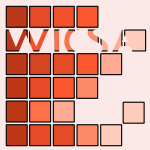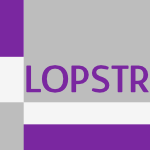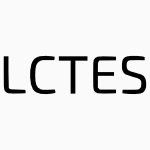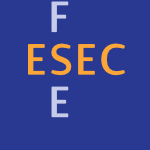191 papers:
 FoSSaCS-2015-Cotton-BarrattH #automaton #decidability #memory management #ml
FoSSaCS-2015-Cotton-BarrattH #automaton #decidability #memory management #ml- Fragments of ML Decidable by Nested Data Class Memory Automata (CCB, DH, ASM, CHLO), pp. 249–263.
 MSR-2015-DuijnKB #quality #stack overflow
MSR-2015-DuijnKB #quality #stack overflow- Quality Questions Need Quality Code: Classifying Code Fragments on Stack Overflow (MD, AK, AB), pp. 410–413.
 SANER-2015-SanchezRG #empirical #evolution
SANER-2015-SanchezRG #empirical #evolution- An empirical study of work fragmentation in software evolution tasks (HS, RR, VMG), pp. 251–260.
 LATA-2015-BresolinMMSS #complexity #logic #on the
LATA-2015-BresolinMMSS #complexity #logic #on the- On the Complexity of Fragments of the Modal Logic of Allen’s Relations over Dense Structures (DB, DDM, AM, PS, GS), pp. 511–523.
 ICEIS-v2-2015-WeissAHK #modelling #reuse
ICEIS-v2-2015-WeissAHK #modelling #reuse- Fostering Reuse in Choreography Modeling Through Choreography Fragments (AW, VA, MH, DK), pp. 28–36.
 ECMFA-2015-JahanbanifarKT #approach #integration #modelling
ECMFA-2015-JahanbanifarKT #approach #integration #modelling- A Model-Based Approach for the Integration of Configuration Fragments (AJ, FK, MT), pp. 125–136.
 MoDELS-2015-AmalioLG #formal method #named
MoDELS-2015-AmalioLG #formal method #named- Fragmenta: A theory of fragmentation for MDE (NA, JdL, EG), pp. 106–115.
 OOPSLA-2015-0003KLS #data type #memory management #multi #performance #scalability
OOPSLA-2015-0003KLS #data type #memory management #multi #performance #scalability- Fast, multicore-scalable, low-fragmentation memory allocation through large virtual memory and global data structures (MA, CMK, ML, AS), pp. 451–469.
 ISMM-2015-KimKKJ #memory management #mobile #physics
ISMM-2015-KimKKJ #memory management #mobile #physics- Controlling physical memory fragmentation in mobile systems (SHK, SK, JSK, JJ), pp. 1–14.
 CSL-2015-KieronskiK #equivalence
CSL-2015-KieronskiK #equivalence- Uniform One-Dimensional Fragments with One Equivalence Relation (EK, AK), pp. 597–615.
 LICS-2015-Carreiro #bisimulation #invariant #logic
LICS-2015-Carreiro #bisimulation #invariant #logic- PDL Is the Bisimulation-Invariant Fragment of Weak Chain Logic (FC), pp. 341–352.
 ICALP-v2-2014-JungLGS #first-order #logic #probability
ICALP-v2-2014-JungLGS #first-order #logic #probability- Monodic Fragments of Probabilistic First-Order Logic (JCJ, CL, SG, LS), pp. 256–267.
 CSCW-2014-WongG #years after
CSCW-2014-WongG #years after- Support for deictic pointing in CVEs: still fragmented after all these years (NW, CG), pp. 1377–1387.
 KR-2014-LakemeyerL #calculus #decidability #reasoning
KR-2014-LakemeyerL #calculus #decidability #reasoning- Decidable Reasoning in a Fragment of the Epistemic Situation Calculus (GL, HJL).
 MoDELS-2014-VasilevskiyH #product line
MoDELS-2014-VasilevskiyH #product line- Resolution of Interfering Product Fragments in Software Product Line Engineering (AV, ØH), pp. 467–483.
 MoDELS-2014-VasilevskiyH #product line
MoDELS-2014-VasilevskiyH #product line- Resolution of Interfering Product Fragments in Software Product Line Engineering (AV, ØH), pp. 467–483.
 CAV-2014-TiwariL
CAV-2014-TiwariL- A Nonlinear Real Arithmetic Fragment (AT, PL), pp. 729–736.
 HT-2013-DiazST #process #web
HT-2013-DiazST #process #web- Activity fragmentation in the web: empowering users to support their own webflows (OD, JDS, ST), pp. 69–78.
 ICALP-v2-2013-GottlobPT #query #transitive
ICALP-v2-2013-GottlobPT #query #transitive- Querying the Guarded Fragment with Transitivity (GG, AP, LT), pp. 287–298.
 CHI-2013-OdomZFHMCLNLLKRSSM #comprehension
CHI-2013-OdomZFHMCLNLLKRSSM #comprehension- Fragmentation and transition: understanding perceptions of virtual possessions among young adults in Spain, South Korea and the United States (WO, JZ, JF, ALH, MM, JC, YKL, TJN, MHL, YL, DjK, YKR, JS, BS, HM), pp. 1833–1842.
 ICMT-2013-LepperT #performance #validation
ICMT-2013-LepperT #performance #validation- Fragmented Validation: A Simple and Efficient Contribution to XSLT Checking (Extended Abstract) (ML, BTyW), pp. 54–55.
 ESEC-FSE-2013-YingR #summary
ESEC-FSE-2013-YingR #summary- Code fragment summarization (ATTY, MPR), pp. 655–658.
 HPCA-2013-WangCWMZLN #architecture #execution #parallel
HPCA-2013-WangCWMZLN #architecture #execution #parallel- A multiple SIMD, multiple data (MSMD) architecture: Parallel execution of dynamic and static SIMD fragments (YW, SC, JW, JM, KZ, WL, XN), pp. 603–614.
 LICS-2013-FacchiniVZ #calculus #theorem #μ-calculus
LICS-2013-FacchiniVZ #calculus #theorem #μ-calculus- A Characterization Theorem for the Alternation-Free Fragment of the Modal μ-Calculus (AF, YV, FZ), pp. 478–487.
 CBSE-2012-KarolBA #attribute grammar #composition #towards
CBSE-2012-KarolBA #attribute grammar #composition #towards- Towards well-formed fragment composition with reference attribute grammars (SK, CB, UA), pp. 109–114.
 DATE-2012-BeaumontHN #architecture #execution #hardware #replication #security #using
DATE-2012-BeaumontHN #architecture #execution #hardware #replication #security #using- SAFER PATH: Security architecture using fragmented execution and replication for protection against trojaned hardware (MRB, BDH, TN), pp. 1000–1005.
 DocEng-2012-Crozat #collaboration #xml
DocEng-2012-Crozat #collaboration #xml- Structured and fragmented content in collaborative XML publishing chains (SC), pp. 145–148.
 DRR-2012-ChandaFP #clustering #documentation #using
DRR-2012-ChandaFP #clustering #documentation #using- Clustering document fragments using background color and texture information (SC, KF, UP).
 FoSSaCS-2012-PreugschatW #automaton #effectiveness #logic #using
FoSSaCS-2012-PreugschatW #automaton #effectiveness #logic #using- Effective Characterizations of Simple Fragments of Temporal Logic Using Prophetic Automata (SP, TW), pp. 135–149.
 CSMR-2012-BettenburgTH #code search #fuzzy #source code #using
CSMR-2012-BettenburgTH #code search #fuzzy #source code #using- Using Fuzzy Code Search to Link Code Fragments in Discussions to Source Code (NB, SWT, AEH), pp. 319–328.
 CSMR-2012-DeissenboeckHHW #challenge #detection
CSMR-2012-DeissenboeckHHW #challenge #detection- Challenges of the Dynamic Detection of Functionally Similar Code Fragments (FD, LH, BH, SW), pp. 299–308.
 ICSM-2012-HigoK #consistency #detection #how #nondeterminism
ICSM-2012-HigoK #consistency #detection #how #nondeterminism- How often do unintended inconsistencies happen? Deriving modification patterns and detecting overlooked code fragments (YH, SK), pp. 222–231.
 WCRE-2012-HanZFHWS #analysis #android #comprehension #debugging #topic
WCRE-2012-HanZFHWS #analysis #android #comprehension #debugging #topic- Understanding Android Fragmentation with Topic Analysis of Vendor-Specific Bugs (DH, CZ, XF, AH, KW, ES), pp. 83–92.
 ICALP-v2-2012-KufleitnerL #logic #word
ICALP-v2-2012-KufleitnerL #logic #word- Lattices of Logical Fragments over Words — (Extended Abstract) (MK, AL), pp. 275–286.
 CSCW-2012-Pine
CSCW-2012-Pine- Fragmentation and choreography: caring for a patient and a chart during childbirth (KP), pp. 887–896.
 CIKM-2012-LevacherLW #evaluation #reuse #slicing
CIKM-2012-LevacherLW #evaluation #reuse #slicing- An evaluation and enhancement of densitometric fragmentation for content slicing reuse (KL, SL, VW), pp. 2403–2406.
 KR-2012-CreignouPPW #logic
KR-2012-CreignouPPW #logic- Belief Revision within Fragments of Propositional Logic (NC, OP, RP, SW).
 MoDELS-2012-ScheidgenZFK #automation #modelling #scalability
MoDELS-2012-ScheidgenZFK #automation #modelling #scalability- Automated and Transparent Model Fragmentation for Persisting Large Models (MS, AZ, JF, THK), pp. 102–118.
 MoDELS-2012-ScheidgenZFK #automation #modelling #scalability
MoDELS-2012-ScheidgenZFK #automation #modelling #scalability- Automated and Transparent Model Fragmentation for Persisting Large Models (MS, AZ, JF, THK), pp. 102–118.
 LDTA-2012-VieraSD
LDTA-2012-VieraSD- Grammar fragments fly first-class (MV, SDS, AD), p. 5.
 CAV-2012-HopkinsMO #equivalence #higher-order #ml #named
CAV-2012-HopkinsMO #equivalence #higher-order #ml #named- Hector: An Equivalence Checker for a Higher-Order Fragment of ML (DH, ASM, CHLO), pp. 774–780.
 CAV-2012-KretinskyE #automaton #ltl
CAV-2012-KretinskyE #automaton #ltl- Deterministic Automata for the (F, G)-Fragment of LTL (JK, JE), pp. 7–22.
 ICDAR-2011-DiemKS #analysis #classification #documentation #layout
ICDAR-2011-DiemKS #analysis #classification #documentation #layout- Text Classification and Document Layout Analysis of Paper Fragments (MD, FK, RS), pp. 854–858.
 PLDI-2011-LuciaWC #comprehension #concurrent #execution #fault #using
PLDI-2011-LuciaWC #comprehension #concurrent #execution #fault #using- Isolating and understanding concurrency errors using reconstructed execution fragments (BL, BPW, LC), pp. 378–388.
 CIAA-2011-GauwinN #xpath
CIAA-2011-GauwinN #xpath- Streamable Fragments of Forward XPath (OG, JN), pp. 3–15.
 ICALP-v2-2011-HopkinsMO #automaton #decidability #ml
ICALP-v2-2011-HopkinsMO #automaton #decidability #ml- A Fragment of ML Decidable by Visibly Pushdown Automata (DH, ASM, CHLO), pp. 149–161.
 CHI-2011-Gazan #community #interactive #social
CHI-2011-Gazan #community #interactive #social- Redesign as an act of violence: disrupted interaction patterns and the fragmenting of a social Q&A community (RG), pp. 2847–2856.
 CSL-2011-CantoneLA #decidability #logic #order #quantifier #set
CSL-2011-CantoneLA #decidability #logic #order #quantifier #set- A Decidable Quantified Fragment of Set Theory Involving Ordered Pairs with Applications to Description Logics (DC, CL, MNA), pp. 129–143.
 LICS-2011-BresolinMSS #decidability #logic #what
LICS-2011-BresolinMSS #decidability #logic #what- What’s Decidable about Halpern and Shoham’s Interval Logic? The Maximal Fragment ABBL (DB, AM, PS, GS), pp. 387–396.
 VLDB-2010-VimercatiFJPS #privacy
VLDB-2010-VimercatiFJPS #privacy- Fragments and Loose Associations: Respecting Privacy in Data Publishing (SDCdV, SF, SJ, SP, PS), pp. 1370–1381.
 ICSM-2010-Wilson #concept #ontology #using
ICSM-2010-Wilson #concept #ontology #using- Using ontology fragments in concept location (LAW), pp. 1–2.
 PLDI-2010-PizloZMHBV #garbage collection #named #realtime
PLDI-2010-PizloZMHBV #garbage collection #named #realtime- Schism: fragmentation-tolerant real-time garbage collection (FP, LZ, PM, ALH, EB, JV), pp. 146–159.
 ICALP-v2-2010-MontanariPS #decidability #logic
ICALP-v2-2010-MontanariPS #decidability #logic- Maximal Decidable Fragments of Halpern and Shoham’s Modal Logic of Intervals (AM, GP, PS), pp. 345–356.
 CAiSE-2010-EsfahaniYC #approach #evaluation
CAiSE-2010-EsfahaniYC #approach #evaluation- Situational Evaluation of Method Fragments: An Evidence-Based Goal-Oriented Approach (HCE, ESKY, JC), pp. 424–438.
 CIKM-2010-FerraginaS #named #on the fly #wiki
CIKM-2010-FerraginaS #named #on the fly #wiki- TAGME: on-the-fly annotation of short text fragments (by wikipedia entities) (PF, US), pp. 1625–1628.
 KMIS-2010-KarimaAO #distributed
KMIS-2010-KarimaAO #distributed- Experimental Evidence on Data Warehouse Fragmentation and Allocation in a Distributed Context (TK, AA, HO), pp. 102–110.
 KR-2010-OrtizRS #owl #reasoning #worst-case
KR-2010-OrtizRS #owl #reasoning #worst-case- Worst-Case Optimal Reasoning for the Horn-DL Fragments of OWL 1 and 2 (MO, SR, MS).
 SAC-2010-ChandaFP #classification #documentation
SAC-2010-ChandaFP #classification #documentation- Structural handwritten and machine print classification for sparse content and arbitrary oriented document fragments (SC, KF, UP), pp. 18–22.
 SAC-2010-HilaireGGK #approach #documentation
SAC-2010-HilaireGGK #approach #documentation- An approach based upon OWL-S for method fragments documentation and selection (VH, NG, SG, AK), pp. 938–939.
 SAC-2010-MenorBBGP #classification #markov #taxonomy #using
SAC-2010-MenorBBGP #classification #markov #taxonomy #using- Virus DNA-fragment classification using taxonomic hidden Markov model profiles (MM, KB, MB, YG, GP), pp. 1567–1571.
 SAC-2010-PuvianiCCM #experience
SAC-2010-PuvianiCCM #experience- Building an agent methodology from fragments: the MEnSA experience (MP, MC, GC, AM), pp. 920–927.
 ICSE-2010-FritzM #developer #using
ICSE-2010-FritzM #developer #using- Using information fragments to answer the questions developers ask (TF, GCM), pp. 175–184.
 ICLP-J-2010-GabbrielliMMS #decidability
ICLP-J-2010-GabbrielliMMS #decidability- Decidability properties for fragments of CHR (MG, JM, MCM, JS), pp. 611–626.
 ICLP-J-2010-PaluDFP #assembly
ICLP-J-2010-PaluDFP #assembly- CLP-based protein fragment assembly (ADP, AD, FF, EP), pp. 709–724.
 LICS-2010-BaranyGO #query
LICS-2010-BaranyGO #query- Querying the Guarded Fragment (VB, GG, MO), pp. 1–10.
 LICS-2010-Otto
LICS-2010-Otto- Highly Acyclic Groups, Hypergraph Covers and the Guarded Fragment (MO), pp. 11–20.
 ICDAR-2009-IwataKNIUO #documentation #image
ICDAR-2009-IwataKNIUO #documentation #image- Capturing Digital Ink as Retrieving Fragments of Document Images (KI, KK, TN, MI, SU, SO), pp. 1236–1240.
 ICPC-2009-RatanotayanonS
ICPC-2009-RatanotayanonS- Creating task-based concern maps by merging concern fragments (SR, SES), pp. 299–300.
 ICALP-v2-2009-KobayashiO #calculus #complexity #model checking #recursion #μ-calculus
ICALP-v2-2009-KobayashiO #calculus #complexity #model checking #recursion #μ-calculus- Complexity of Model Checking Recursion Schemes for Fragments of the Modal μ-Calculus (NK, CHLO), pp. 223–234.
 ICALP-v2-2009-Michaliszyn #decidability #transitive
ICALP-v2-2009-Michaliszyn #decidability #transitive- Decidability of the Guarded Fragment with the Transitive Closure (JM), pp. 261–272.
 CIKM-2009-WuZH #clustering
CIKM-2009-WuZH #clustering- Fragment-based clustering ensembles (OW, MZ, WH), pp. 1795–1798.
 ECIR-2009-TorjmenPB #multi #retrieval #xml
ECIR-2009-TorjmenPB #multi #retrieval #xml- XML Multimedia Retrieval: From Relevant Textual Information to Relevant Multimedia Fragments (MT, KPS, MB), pp. 150–161.
 SAC-2009-MahboubiD #performance #query #xml
SAC-2009-MahboubiD #performance #query #xml- Enhancing XML data warehouse query performance by fragmentation (HM, JD), pp. 1555–1562.
 ISSTA-2009-JiangS #automation #mining #random testing #testing
ISSTA-2009-JiangS #automation #mining #random testing #testing- Automatic mining of functionally equivalent code fragments via random testing (LJ, ZS), pp. 81–92.
 RTA-2009-Schubert #parallel
RTA-2009-Schubert #parallel- The Existential Fragment of the One-Step Parallel Rewriting Theory (AS), pp. 78–92.
 SAT-2009-BeyersdorffMTV #complexity #logic #reasoning
SAT-2009-BeyersdorffMTV #complexity #logic #reasoning- The Complexity of Reasoning for Fragments of Default Logic (OB, AM, MT, HV), pp. 51–64.
 WICSA-2008-DhunganaNGR #architecture #evolution #product line #variability
WICSA-2008-DhunganaNGR #architecture #evolution #product line #variability- Supporting the Evolution of Product Line Architectures with Variability Model Fragments (DD, TN, PG, RR), pp. 327–330.
 DATE-2008-RedaelliSS #anti #configuration management #scheduling
DATE-2008-RedaelliSS #anti #configuration management #scheduling- Task Scheduling with Configuration Prefetching and Anti-Fragmentation techniques on Dynamically Reconfigurable Systems (FR, MDS, DS), pp. 519–522.
 DocEng-2008-CesarBJPB #adaptation #multi
DocEng-2008-CesarBJPB #adaptation #multi- Multimedia content transformation: fragmentation, enrichment, and adaptation (PC, DCAB, JJ, MdGCP, SDJB), pp. 1–2.
 FoSSaCS-2008-Bojanczyk #ltl
FoSSaCS-2008-Bojanczyk #ltl- The Common Fragment of ACTL and LTL (MB), pp. 172–185.
 DLT-J-2007-DiekertGK08 #bibliography #finite #first-order #logic #word
DLT-J-2007-DiekertGK08 #bibliography #finite #first-order #logic #word- A Survey on Small Fragments of First-Order Logic over Finite Words (VD, PG, MK), pp. 513–548.
 ICEIS-DISI-2008-Walsh #architecture #component
ICEIS-DISI-2008-Walsh #architecture #component- Configuration Fragments as the DNA of System and Change Properties — Architectural Change of Component-based and Service-oriented Systems (DW), pp. 270–275.
 SEKE-2008-Rajapakse #mobile #taxonomy
SEKE-2008-Rajapakse #mobile #taxonomy- Techniques for De-fragmenting Mobile Applications: A Taxonomy (DCR), pp. 923–928.
 SAC-2008-AlthausCEKMMZ
SAC-2008-AlthausCEKMMZ- Computing H/D-exchange speeds of single residues from data of peptic fragments (EA, SC, MRE, AK, AGM, AMB, HZ), pp. 1273–1277.
 SAC-2008-DiasSCCA #approach #case study #specification
SAC-2008-DiasSCCA #approach #case study #specification- Elaboration of use case specifications: an approach based on use case fragments (FGD, EAS, MLMC, ALC, AJA), pp. 614–618.
 SAC-2008-DornS #3d #approximate #named #predict
SAC-2008-DornS #3d #approximate #named #predict- CReF: a central-residue-fragment-based method for predicting approximate 3-D polypeptides structures (MD, ONdS), pp. 1261–1267.
 CSL-2008-Fontaine #calculus #μ-calculus
CSL-2008-Fontaine #calculus #μ-calculus- Continuous Fragment of the μ-Calculus (GF), pp. 139–153.
 IJCAR-2008-SchmidtT #first-order #logic
IJCAR-2008-SchmidtT #first-order #logic- A General Tableau Method for Deciding Description Logics, Modal Logics and Related First-Order Fragments (RAS, DT), pp. 194–209.
 DocEng-2007-ConcolatoFM #documentation #memory management
DocEng-2007-ConcolatoFM #documentation #memory management- Timed-fragmentation of SVG documents to control the playback memory usage (CC, JLF, JCM), pp. 121–124.
 ICDAR-2007-ChouGC #classification #multi #recognition #using
ICDAR-2007-ChouGC #classification #multi #recognition #using- Recognition of Fragmented Characters Using Multiple Feature-Subset Classifiers (CHC, CYG, FC), pp. 198–202.
 PODS-2007-CateL #complexity #query #xpath
PODS-2007-CateL #complexity #query #xpath- The complexity of query containment in expressive fragments of XPath 2.0 (BtC, CL), pp. 73–82.
 PODS-2007-FiliotNTT #polynomial #xpath
PODS-2007-FiliotNTT #polynomial #xpath- Polynomial time fragments of XPath with variables (EF, JN, JMT, ST), pp. 205–214.
 DLT-2007-DiekertK #first-order #on the #word
DLT-2007-DiekertK #first-order #on the #word- On First-Order Fragments for Words and Mazurkiewicz Traces (VD, MK), pp. 1–19.
 SAC-2007-CiferriCFTS #performance #query
SAC-2007-CiferriCFTS #performance #query- Horizontal fragmentation as a technique to improve the performance of drill-down and roll-up queries (CDdAC, RRC, DTF, AJMT, FdFdS), pp. 494–499.
 LICS-2007-CateBV #first-order #logic #theorem
LICS-2007-CateBV #first-order #logic #theorem- Lindstrom theorems for fragments of first-order logic (BtC, JvB, JAV), pp. 280–292.
 LICS-2007-Perron
LICS-2007-Perron- Examining The Fragments of G (SJP), pp. 225–234.
 VLDB-2006-Pradhan #algebra #effectiveness #performance #query #retrieval #xml
VLDB-2006-Pradhan #algebra #effectiveness #performance #query #retrieval #xml- An Algebraic Query Model for Effective and Efficient Retrieval of XML Fragments (SP), pp. 295–306.
 DLT-2006-Kufleitner #logic
DLT-2006-Kufleitner #logic- Polynomials, Fragments of Temporal Logic and the Variety DA over Traces (MK), pp. 37–48.
 CHI-2006-BergmanBN #information management #problem
CHI-2006-BergmanBN #information management #problem- The project fragmentation problem in personal information management (OB, RBM, RN), pp. 271–274.
 ICPR-v1-2006-ChanHSSBD #recognition
ICPR-v1-2006-ChanHSSBD #recognition- Event Recognition with Fragmented Object Tracks (MTC, AH, ZS, JS, RB, GD), pp. 412–416.
 SIGIR-2006-Chu-CarrollPCFD #approach #information retrieval #semantics #xml
SIGIR-2006-Chu-CarrollPCFD #approach #information retrieval #semantics #xml- Semantic search via XML fragments: a high-precision approach to IR (JCC, JMP, KC, DAF, PAD), pp. 445–452.
 MoDELS-2006-SriplakichBG #distributed
MoDELS-2006-SriplakichBG #distributed- Applying Model Fragment Copy-Restore to Build an Open and Distributed MDA Environment (PS, XB, MPG), pp. 631–645.
 MoDELS-2006-SriplakichBG #distributed
MoDELS-2006-SriplakichBG #distributed- Applying Model Fragment Copy-Restore to Build an Open and Distributed MDA Environment (PS, XB, MPG), pp. 631–645.
 OOPSLA-2006-FairbanksGS #design #framework #using
OOPSLA-2006-FairbanksGS #design #framework #using- Design fragments make using frameworks easier (GF, DG, WLS), pp. 75–88.
 SAC-2006-BastideSO #adaptation #component
SAC-2006-BastideSO #adaptation #component- Adapting software components by structure fragmentation (GB, AS, MO), pp. 1751–1758.
 SAC-2006-Zanardini #bytecode #java
SAC-2006-Zanardini #bytecode #java- Abstract non-interference in a fragment of Java bytecode (DZ), pp. 1822–1826.
 HT-2005-WildeB #identifier
HT-2005-WildeB #identifier- Fragment identifiers for plain text files (EW, MB), pp. 211–213.
 PODS-2005-Vansummeren #xquery
PODS-2005-Vansummeren #xquery- Deciding well-definedness of XQuery fragments (SV), pp. 37–48.
 SCAM-2005-SchordanQ #attribute grammar #sequence #specification
SCAM-2005-SchordanQ #attribute grammar #sequence #specification- Specifying Transformation Sequences as Computation on Program Fragments with an Abstract Attribute Grammar (MS, DJQ), pp. 97–106.
 DLT-J-2004-MuschollW05 #ltl
DLT-J-2004-MuschollW05 #ltl- An NP-complete fragment of LTL (AM, IW), pp. 743–753.
 CHI-2005-MarkGH
CHI-2005-MarkGH- No task left behind?: examining the nature of fragmented work (GM, VMG, JH), pp. 321–330.
 CHI-2005-OulasvirtaTRK #human-computer #interactive #mobile
CHI-2005-OulasvirtaTRK #human-computer #interactive #mobile- Interaction in 4-second bursts: the fragmented nature of attentional resources in mobile HCI (AO, ST, VR, JK), pp. 919–928.
 CIKM-2005-MatsumuraT #evaluation #incremental #xpath
CIKM-2005-MatsumuraT #evaluation #incremental #xpath- Incremental evaluation of a monotone XPath fragment (HM, KT), pp. 245–246.
 SEKE-2005-IzadiM #algorithm #calculus #model checking #performance #μ-calculus
SEKE-2005-IzadiM #algorithm #calculus #model checking #performance #μ-calculus- An Efficient Model Checking Algorithm for a Fragment of μ-Calculus (MI, AMR), pp. 392–395.
 CADE-2005-HustadtKS
CADE-2005-HustadtKS- Deciding Monodic Fragments by Temporal Resolution (UH, BK, RAS), pp. 204–218.
 CSL-2005-Kieronski #equivalence #transitive
CSL-2005-Kieronski #equivalence #transitive- Results on the Guarded Fragment with Equivalence or Transitive Relations (EK), pp. 309–324.
 WCRE-2004-Bollin #performance #specification
WCRE-2004-Bollin #performance #specification- The Efficiency of Specification Fragments (AB), pp. 266–275.
 DLT-2004-MuschollW #ltl
DLT-2004-MuschollW #ltl- An NP-Complete Fragment of LTL (AM, IW), pp. 334–344.
 ICEIS-v2-2004-LampertiZ
ICEIS-v2-2004-LampertiZ- Dynamic Diagnosis of Active Systems with Fragmented Observations (GL, MZ), pp. 249–261.
 ICPR-v2-2004-KampelS #3d #on the #symmetry
ICPR-v2-2004-KampelS #3d #on the #symmetry- On 3D Mosaicing of Rotationally Symmetric Ceramic Fragments (MK, RS), pp. 265–268.
 ICPR-v2-2004-RennaCMAD
ICPR-v2-2004-RennaCMAD- Color Correction for the Virtual Recomposition of Fragmented Frescos (FR, GC, NM, GA, AD), pp. 907–910.
 ICPR-v4-2004-RennaCMAD04a
ICPR-v4-2004-RennaCMAD04a- Virtual Recomposition of Frescos: Separating Fragments from the Background (FR, GC, NM, GA, AD), pp. 819–822.
 LOPSTR-2004-Vanhoof #logic programming #semantics #source code
LOPSTR-2004-Vanhoof #logic programming #semantics #source code- Searching Semantically Equivalent Code Fragments in Logic Programs (WV), pp. 1–18.
 LOPSTR-2004-WellsY #graph #proving #synthesis
LOPSTR-2004-WellsY #graph #proving #synthesis- Graph-Based Proof Counting and Enumeration with Applications for Program Fragment Synthesis (JBW, BY), pp. 262–277.
 SAC-2004-BourasKM #personalisation
SAC-2004-BourasKM #personalisation- A web-page fragmentation technique for personalized browsing (CB, VK, IM), pp. 1146–1147.
 IJCAR-2004-KazakovN #transitive
IJCAR-2004-KazakovN #transitive- A Resolution Decision Procedure for the Guarded Fragment with Transitive Guards (YK, HdN), pp. 122–136.
 FoSSaCS-2003-Kieronski #transitive
FoSSaCS-2003-Kieronski #transitive- The Two-Variable Guarded Fragment with Transitive Guards Is 2EXPTIME-Hard (EK), pp. 299–312.
 TACAS-2003-HenzingerKM #calculus #on the #μ-calculus
TACAS-2003-HenzingerKM #calculus #on the #μ-calculus- On the Universal and Existential Fragments of the μ-Calculus (TAH, OK, RM), pp. 49–64.
 PEPM-2003-AttardiCK #named
PEPM-2003-AttardiCK #named- CodeBricks: code fragments as building blocks (GA, AC, AK), pp. 66–74.
 ICEIS-v1-2003-EzeifeD #database #incremental
ICEIS-v1-2003-EzeifeD #database #incremental- Incremental Horizontal Fragmentation of Database Class Objects (CIE, PD), pp. 239–245.
 CIKM-2003-RamaswamyILD #detection #performance #web
CIKM-2003-RamaswamyILD #detection #performance #web- Techniques for efficient fragment detection in web pages (LR, AI, LL, FD), pp. 516–519.
 KDD-2003-GionisKM #order
KDD-2003-GionisKM #order- Fragments of order (AG, TK, HM), pp. 129–136.
 SIGIR-2003-CarmelMMMS #documentation #xml
SIGIR-2003-CarmelMMMS #documentation #xml- Searching XML documents via XML fragments (DC, YSM, MM, YM, AS), pp. 151–158.
 ICSE-2003-RountevMR #analysis #java #morphism #polymorphism #testing
ICSE-2003-RountevMR #analysis #java #morphism #polymorphism #testing- Fragment Class Analysis for Testing of Polymorphism in Java Software (AR, AM, BGR), pp. 210–220.
 LCTES-2003-BaconCR #garbage collection #java #realtime
LCTES-2003-BaconCR #garbage collection #java #realtime- Controlling fragmentation and space consumption in the metronome, a real-time garbage collector for Java (DFB, PC, VTR), pp. 81–92.
 RTA-2003-Comon-LundhC #decidability #encryption #first-order #logic #protocol
RTA-2003-Comon-LundhC #decidability #encryption #first-order #logic #protocol- New Decidability Results for Fragments of First-Order Logic and Application to Cryptographic Protocols (HCL, VC), pp. 148–164.
 DATE-2002-MishraDNT #automation #execution #functional #multi #pipes and filters #verification
DATE-2002-MishraDNT #automation #execution #functional #multi #pipes and filters #verification- Automatic Verification of In-Order Execution In Microprocessors with Fragmented Pipelines and Multicycle Functional Units (PM, NDD, AN, HT), pp. 36–43.
 PODS-2002-MiklauS #equivalence #xpath
PODS-2002-MiklauS #equivalence #xpath- Containment and Equivalence for an XPath Fragment (GM, DS), pp. 65–76.
 ICPR-v3-2002-CooperWABCHKKLOVVJKLM #geometry #problem
ICPR-v3-2002-CooperWABCHKKLOVVJKLM #geometry #problem- Bayesian Pot-Assembly from Fragments as Problems in Perceptual-Grouping and Geometric-Learning (DBC, ARW, SA, JB, YC, DH, KK, WK, FFL, XO, SV, EV, MSJ, BBK, DHL, DM), pp. 297–302.
 SAC-2002-Zdun #generative #web
SAC-2002-Zdun #generative #web- Dynamically generating web application fragments from page templates (UZ), pp. 1113–1120.
 LICS-2002-HodkinsonWZ #branch #decidability #first-order #logic
LICS-2002-HodkinsonWZ #branch #decidability #first-order #logic- Decidable and Undecidable Fragments of First-Order Branching Temporal Logics (IMH, FW, MZ), pp. 393–402.
 DLT-2001-EiterGS #higher-order #logic #string
DLT-2001-EiterGS #higher-order #logic #string- Second-Order Logic over Strings: Regular and Non-regular Fragments (TE, GG, TS), pp. 37–56.
 DLT-2001-MignosiRS #assembly
DLT-2001-MignosiRS #assembly- Forbidden Factors and Fragment Assembly (FM, AR, MS), pp. 349–358.
 CSL-2001-LutzSW #logic
CSL-2001-LutzSW #logic- Modal Logic and the Two-Variable Fragment (CL, US, FW), pp. 247–261.
 ICLP-2001-BanbaraKHT #linear #logic programming
ICLP-2001-BanbaraKHT #linear #logic programming- Logic Programming in a Fragment of Intuitionistic Temporal Linear Logic (MB, KSK, TH, NT), pp. 315–330.
 IJCAR-2001-NivelleP #similarity
IJCAR-2001-NivelleP #similarity- A Resolution-Based Decision Procedure for the Two-Variable Fragment with Equality (HdN, IPH), pp. 211–225.
 IJCAR-2001-Pliuskevicius
IJCAR-2001-Pliuskevicius- Deduction-Based Decision Procedure for a Clausal Miniscoped Fragment of FTL (RP), pp. 107–120.
 LICS-2001-AlurT #game studies #generative #ltl
LICS-2001-AlurT #game studies #generative #ltl- Deterministic Generators and Games for LTL Fragments (RA, SLT), pp. 291–300.
 LICS-2001-SzwastT #on the #problem #transitive
LICS-2001-SzwastT #on the #problem #transitive- On the Decision Problem for the Guarded Fragment with Transitivity (WS, LT), pp. 147–156.
 ICPR-v4-2000-KampelS #classification
ICPR-v4-2000-KampelS #classification- Color Classification of Archaeological Fragments (MK, RS), pp. 4771–4774.
 SAIG-2000-HelsenT
SAIG-2000-HelsenT- Fragmental Specialization (SH, PT), pp. 51–71.
 CL-2000-BexMN #formal method
CL-2000-BexMN #formal method- A Formal Model for an Expressive Fragment of XSLT (GJB, SM, FN), pp. 1137–1151.
 LICS-2000-JeffreyR #bisimulation #concurrent #formal method #ml
LICS-2000-JeffreyR #bisimulation #concurrent #formal method #ml- A Theory of Bisimulation for a Fragment of Concurrent ML with Local Names (AJ, JR), pp. 311–321.
 ICALP-1999-CortierGJV #decidability #reachability
ICALP-1999-CortierGJV #decidability #reachability- Decidable Fragments of Simultaneous Rigid Reachability (VC, HG, FJ, MV), pp. 250–260.
 CIKM-1999-NoamanB #algorithm #distributed
CIKM-1999-NoamanB #algorithm #distributed- A Horizontal Fragmentation Algorithm for the Fact Relation in a Distributed Data Warehouse (AYN, KB), pp. 154–161.
 ESEC-FSE-1999-RountevRL #analysis #data flow
ESEC-FSE-1999-RountevRL #analysis #data flow- Data-Flow Analysis of Program Fragments (AR, BGR, WL), pp. 235–252.
 LICS-1999-DrossopoulouEW #calculus #compilation #towards
LICS-1999-DrossopoulouEW #calculus #compilation #towards- A Fragment Calculus — Towards a Model of Separate Compilation, Linking and Binary Compatibility (SD, SE, DW), pp. 147–156.
 LICS-1999-GanzingerMV #transitive
LICS-1999-GanzingerMV #transitive- The Two-Variable Guarded Fragment with Transitive Relations (HG, CM, MV), pp. 24–34.
 LICS-1999-GanzingerN #similarity
LICS-1999-GanzingerN #similarity- A Superposition Decision Procedure for the Guarded Fragment with Equality (HG, HdN), pp. 295–303.
 FM-1998-GeserK #verification
FM-1998-GeserK #verification- Structured Formal Verification of a Fragment of the IBM S/390 Clock Chip (AG, WK), pp. 92–106.
 CSCW-1998-HindmarshFHBG #interactive
CSCW-1998-HindmarshFHBG #interactive- Fragmented Interaction: Establishing Mutual Orientation in Virtual Environments (JH, MF, CH, SB, CG), pp. 217–226.
 TOOLS-ASIA-1998-Bosch #design pattern #framework #specification
TOOLS-ASIA-1998-Bosch #design pattern #framework #specification- Specifying Frameworks and Design Patterns as Architectural Fragments (JB), p. 268–?.
 ISMM-1998-JohnstoneW #memory management #problem #question
ISMM-1998-JohnstoneW #memory management #problem #question- The Memory Fragmentation Problem: Solved? (MSJ, PRW), pp. 26–36.
 ISMM-1998-Rodriguez-RiveraSF #garbage collection
ISMM-1998-Rodriguez-RiveraSF #garbage collection- A Non-Fragmenting NonMmoving, Garbage Collector (GRR, MS, CF), pp. 79–85.
 CADE-1998-Nivelle
CADE-1998-Nivelle- A Resolution Decision Procedure for the Guarded Fragment (HdN), pp. 191–204.
 IWTCS-1998-Grunsky #automaton #testing
IWTCS-1998-Grunsky #automaton #testing- Testing of Automata: From Experiments to Representations by Means of Fragments (ISG), pp. 3–14.
 LICS-1998-Bars #higher-order #logic
LICS-1998-Bars #higher-order #logic- Fragments of Existential Second-Order Logic without 0-1 Laws (JMLB), pp. 525–536.
 ASE-1997-Hall #automation #library #reasoning #using #validation
ASE-1997-Hall #automation #library #reasoning #using #validation- Reactive System Validation using Automated Reasoning over a Fragment Library (RJH), pp. 299–300.
 POPL-1997-Cardelli #composition
POPL-1997-Cardelli #composition- Program Fragments, Linking, and Modularization (LC), pp. 266–277.
 RWLW-1996-CiampoliniLMS #distributed #implementation #logic
RWLW-1996-CiampoliniLMS #distributed #implementation #logic- Distributed logic objects: A fragment of rewriting logic and its implementation (AC, EL, PM, CS), pp. 110–125.
 TACAS-1996-BhatC #calculus #model checking #μ-calculus
TACAS-1996-BhatC #calculus #model checking #μ-calculus- Efficent Local Model-Checking for Fragments of teh Modal μ-Calculus (GB, RC), pp. 107–126.
 ICPR-1996-AugustSZ #principle
ICPR-1996-AugustSZ #principle- Fragment grouping via the principle of perceptual occlusion (JA, KS, SWZ), pp. 3–8.
 ICRE-1996-RollandP #modelling #process #using
ICRE-1996-RollandP #modelling #process #using- Using Generic Method Chunks to Generate Process Models Fragments (CR, VP), pp. 173–181.
 LICS-1996-DegtyarevV #decidability #logic #problem
LICS-1996-DegtyarevV #decidability #logic #problem- Decidability Problems for the Prenex Fragment of Intuitionistic Logic (AD, AV), pp. 503–512.
 VLDB-1995-BassiliadesV #database #parallel
VLDB-1995-BassiliadesV #database #parallel- A Non-Uniform Data Fragmentation Strategy for Parallel Main-Menory Database Systems (NB, IPV), pp. 370–381.
 EDAC-1994-IllmanT #architecture
EDAC-1994-IllmanT #architecture- A Fragmented Register Architecture and Test Advisor for BIST (RI, DJT), pp. 124–129.
 LFP-1994-KfouryW #algorithm #higher-order #type inference #λ-calculus
LFP-1994-KfouryW #algorithm #higher-order #type inference #λ-calculus- A Direct Algorithm for Type Inference in the Rank-2 Fragment of the Second-Order λ-Calculus (AJK, JBW), pp. 196–207.
 SAC-1994-CorcoranH #algorithm #database #distributed #search-based
SAC-1994-CorcoranH #algorithm #database #distributed #search-based- A genetic algorithm for fragment allocation in a distributed database system (ALC, JH), pp. 247–250.
 CAV-1993-DamsGG #generative #modelling
CAV-1993-DamsGG #generative #modelling- Generation of Reduced Models for Checking Fragments of CTL (DD, OG, RG), pp. 479–490.
 CAV-1993-EmersonJS #calculus #model checking #on the #μ-calculus
CAV-1993-EmersonJS #calculus #model checking #on the #μ-calculus- On Model-Checking for Fragments of μ-Calculus (EAE, CSJ, APS), pp. 385–396.
 CSL-1991-Oguztuzun #equivalence #first-order #logic
CSL-1991-Oguztuzun #equivalence #first-order #logic- A Fragment of First Order Logic Adequate for Observation Equivalence (HO), pp. 278–292.
 LICS-1991-HodasM #linear #logic programming
LICS-1991-HodasM #linear #logic programming- Logic Programming in a Fragment of Intuitionistic Linear Logic (JSH, DM), pp. 32–42.
 LICS-1990-KfouryT #polymorphism #re-engineering #summary #λ-calculus
LICS-1990-KfouryT #polymorphism #re-engineering #summary #λ-calculus- Type Reconstruction in Finite-Rank Fragments of the Polymorphic λ-Calculus (Extended Summary) (AJK, JT), pp. 2–11.
 ICSE-1988-ZeilE
ICSE-1988-ZeilE- Interpretation in a Tool-Fragment Environment (SJZ, ECE), pp. 241–249.
 LICS-1988-KolaitisV #higher-order #logic #problem
LICS-1988-KolaitisV #higher-order #logic #problem- 0-1 Laws and Decision Problems for Fragments of Second-Order Logic (PGK, MYV), pp. 2–11.
 LICS-1986-EmersonL #calculus #model checking #performance #μ-calculus
LICS-1986-EmersonL #calculus #model checking #performance #μ-calculus- Efficient Model Checking in Fragments of the Propositional μ-Calculus (Extended Abstract) (EAE, CLL), pp. 267–278.
 STOC-1985-Buss #bound #polynomial
STOC-1985-Buss #bound #polynomial- The Polynomial Hierarchy and Fragments of Bounded Arithmetic (Extended Abstract) (SRB), pp. 285–290.
 SIGMOD-1983-MaierU
SIGMOD-1983-MaierU- Fragments of Relations (DM, JDU), pp. 15–22.
 STOC-1980-DeMilloL #consistency #problem
STOC-1980-DeMilloL #consistency #problem- The Consistency of “P = NP” and Related Problems with Fragments of Number Theory (RAD, RJL), pp. 45–57.
 SIGIR-1980-LeaS #runtime #using
SIGIR-1980-LeaS #runtime #using- An Associative File Store Using Fragments for Run-Time Indexing and Compression (RML, EJS), pp. 280–295.
 CADE-1980-FerroOS #set
CADE-1980-FerroOS #set- Decision Procedures for Some Fragments of Set Theory (AF, EGO, JTS), pp. 88–96.
 FoSSaCS-2015-Cotton-BarrattH #automaton #decidability #memory management #ml
FoSSaCS-2015-Cotton-BarrattH #automaton #decidability #memory management #ml MSR-2015-DuijnKB #quality #stack overflow
MSR-2015-DuijnKB #quality #stack overflow SANER-2015-SanchezRG #empirical #evolution
SANER-2015-SanchezRG #empirical #evolution LATA-2015-BresolinMMSS #complexity #logic #on the
LATA-2015-BresolinMMSS #complexity #logic #on the ICEIS-v2-2015-WeissAHK #modelling #reuse
ICEIS-v2-2015-WeissAHK #modelling #reuse ECMFA-2015-JahanbanifarKT #approach #integration #modelling
ECMFA-2015-JahanbanifarKT #approach #integration #modelling MoDELS-2015-AmalioLG #formal method #named
MoDELS-2015-AmalioLG #formal method #named OOPSLA-2015-0003KLS #data type #memory management #multi #performance #scalability
OOPSLA-2015-0003KLS #data type #memory management #multi #performance #scalability ISMM-2015-KimKKJ #memory management #mobile #physics
ISMM-2015-KimKKJ #memory management #mobile #physics CSL-2015-KieronskiK #equivalence
CSL-2015-KieronskiK #equivalence LICS-2015-Carreiro #bisimulation #invariant #logic
LICS-2015-Carreiro #bisimulation #invariant #logic ICALP-v2-2014-JungLGS #first-order #logic #probability
ICALP-v2-2014-JungLGS #first-order #logic #probability CSCW-2014-WongG #years after
CSCW-2014-WongG #years after KR-2014-LakemeyerL #calculus #decidability #reasoning
KR-2014-LakemeyerL #calculus #decidability #reasoning MoDELS-2014-VasilevskiyH #product line
MoDELS-2014-VasilevskiyH #product line MoDELS-2014-VasilevskiyH #product line
MoDELS-2014-VasilevskiyH #product line CAV-2014-TiwariL
CAV-2014-TiwariL HT-2013-DiazST #process #web
HT-2013-DiazST #process #web ICALP-v2-2013-GottlobPT #query #transitive
ICALP-v2-2013-GottlobPT #query #transitive CHI-2013-OdomZFHMCLNLLKRSSM #comprehension
CHI-2013-OdomZFHMCLNLLKRSSM #comprehension ICMT-2013-LepperT #performance #validation
ICMT-2013-LepperT #performance #validation ESEC-FSE-2013-YingR #summary
ESEC-FSE-2013-YingR #summary HPCA-2013-WangCWMZLN #architecture #execution #parallel
HPCA-2013-WangCWMZLN #architecture #execution #parallel LICS-2013-FacchiniVZ #calculus #theorem #μ-calculus
LICS-2013-FacchiniVZ #calculus #theorem #μ-calculus CBSE-2012-KarolBA #attribute grammar #composition #towards
CBSE-2012-KarolBA #attribute grammar #composition #towards DATE-2012-BeaumontHN #architecture #execution #hardware #replication #security #using
DATE-2012-BeaumontHN #architecture #execution #hardware #replication #security #using DocEng-2012-Crozat #collaboration #xml
DocEng-2012-Crozat #collaboration #xml DRR-2012-ChandaFP #clustering #documentation #using
DRR-2012-ChandaFP #clustering #documentation #using FoSSaCS-2012-PreugschatW #automaton #effectiveness #logic #using
FoSSaCS-2012-PreugschatW #automaton #effectiveness #logic #using CSMR-2012-BettenburgTH #code search #fuzzy #source code #using
CSMR-2012-BettenburgTH #code search #fuzzy #source code #using CSMR-2012-DeissenboeckHHW #challenge #detection
CSMR-2012-DeissenboeckHHW #challenge #detection ICSM-2012-HigoK #consistency #detection #how #nondeterminism
ICSM-2012-HigoK #consistency #detection #how #nondeterminism WCRE-2012-HanZFHWS #analysis #android #comprehension #debugging #topic
WCRE-2012-HanZFHWS #analysis #android #comprehension #debugging #topic ICALP-v2-2012-KufleitnerL #logic #word
ICALP-v2-2012-KufleitnerL #logic #word CSCW-2012-Pine
CSCW-2012-Pine CIKM-2012-LevacherLW #evaluation #reuse #slicing
CIKM-2012-LevacherLW #evaluation #reuse #slicing KR-2012-CreignouPPW #logic
KR-2012-CreignouPPW #logic MoDELS-2012-ScheidgenZFK #automation #modelling #scalability
MoDELS-2012-ScheidgenZFK #automation #modelling #scalability MoDELS-2012-ScheidgenZFK #automation #modelling #scalability
MoDELS-2012-ScheidgenZFK #automation #modelling #scalability LDTA-2012-VieraSD
LDTA-2012-VieraSD CAV-2012-HopkinsMO #equivalence #higher-order #ml #named
CAV-2012-HopkinsMO #equivalence #higher-order #ml #named CAV-2012-KretinskyE #automaton #ltl
CAV-2012-KretinskyE #automaton #ltl ICDAR-2011-DiemKS #analysis #classification #documentation #layout
ICDAR-2011-DiemKS #analysis #classification #documentation #layout PLDI-2011-LuciaWC #comprehension #concurrent #execution #fault #using
PLDI-2011-LuciaWC #comprehension #concurrent #execution #fault #using CIAA-2011-GauwinN #xpath
CIAA-2011-GauwinN #xpath ICALP-v2-2011-HopkinsMO #automaton #decidability #ml
ICALP-v2-2011-HopkinsMO #automaton #decidability #ml CHI-2011-Gazan #community #interactive #social
CHI-2011-Gazan #community #interactive #social CSL-2011-CantoneLA #decidability #logic #order #quantifier #set
CSL-2011-CantoneLA #decidability #logic #order #quantifier #set LICS-2011-BresolinMSS #decidability #logic #what
LICS-2011-BresolinMSS #decidability #logic #what VLDB-2010-VimercatiFJPS #privacy
VLDB-2010-VimercatiFJPS #privacy ICSM-2010-Wilson #concept #ontology #using
ICSM-2010-Wilson #concept #ontology #using PLDI-2010-PizloZMHBV #garbage collection #named #realtime
PLDI-2010-PizloZMHBV #garbage collection #named #realtime ICALP-v2-2010-MontanariPS #decidability #logic
ICALP-v2-2010-MontanariPS #decidability #logic CAiSE-2010-EsfahaniYC #approach #evaluation
CAiSE-2010-EsfahaniYC #approach #evaluation CIKM-2010-FerraginaS #named #on the fly #wiki
CIKM-2010-FerraginaS #named #on the fly #wiki KMIS-2010-KarimaAO #distributed
KMIS-2010-KarimaAO #distributed KR-2010-OrtizRS #owl #reasoning #worst-case
KR-2010-OrtizRS #owl #reasoning #worst-case SAC-2010-ChandaFP #classification #documentation
SAC-2010-ChandaFP #classification #documentation SAC-2010-HilaireGGK #approach #documentation
SAC-2010-HilaireGGK #approach #documentation SAC-2010-MenorBBGP #classification #markov #taxonomy #using
SAC-2010-MenorBBGP #classification #markov #taxonomy #using SAC-2010-PuvianiCCM #experience
SAC-2010-PuvianiCCM #experience ICSE-2010-FritzM #developer #using
ICSE-2010-FritzM #developer #using ICLP-J-2010-GabbrielliMMS #decidability
ICLP-J-2010-GabbrielliMMS #decidability ICLP-J-2010-PaluDFP #assembly
ICLP-J-2010-PaluDFP #assembly LICS-2010-BaranyGO #query
LICS-2010-BaranyGO #query LICS-2010-Otto
LICS-2010-Otto ICDAR-2009-IwataKNIUO #documentation #image
ICDAR-2009-IwataKNIUO #documentation #image ICPC-2009-RatanotayanonS
ICPC-2009-RatanotayanonS ICALP-v2-2009-KobayashiO #calculus #complexity #model checking #recursion #μ-calculus
ICALP-v2-2009-KobayashiO #calculus #complexity #model checking #recursion #μ-calculus ICALP-v2-2009-Michaliszyn #decidability #transitive
ICALP-v2-2009-Michaliszyn #decidability #transitive CIKM-2009-WuZH #clustering
CIKM-2009-WuZH #clustering ECIR-2009-TorjmenPB #multi #retrieval #xml
ECIR-2009-TorjmenPB #multi #retrieval #xml SAC-2009-MahboubiD #performance #query #xml
SAC-2009-MahboubiD #performance #query #xml ISSTA-2009-JiangS #automation #mining #random testing #testing
ISSTA-2009-JiangS #automation #mining #random testing #testing RTA-2009-Schubert #parallel
RTA-2009-Schubert #parallel SAT-2009-BeyersdorffMTV #complexity #logic #reasoning
SAT-2009-BeyersdorffMTV #complexity #logic #reasoning WICSA-2008-DhunganaNGR #architecture #evolution #product line #variability
WICSA-2008-DhunganaNGR #architecture #evolution #product line #variability DATE-2008-RedaelliSS #anti #configuration management #scheduling
DATE-2008-RedaelliSS #anti #configuration management #scheduling DocEng-2008-CesarBJPB #adaptation #multi
DocEng-2008-CesarBJPB #adaptation #multi FoSSaCS-2008-Bojanczyk #ltl
FoSSaCS-2008-Bojanczyk #ltl DLT-J-2007-DiekertGK08 #bibliography #finite #first-order #logic #word
DLT-J-2007-DiekertGK08 #bibliography #finite #first-order #logic #word ICEIS-DISI-2008-Walsh #architecture #component
ICEIS-DISI-2008-Walsh #architecture #component SEKE-2008-Rajapakse #mobile #taxonomy
SEKE-2008-Rajapakse #mobile #taxonomy SAC-2008-AlthausCEKMMZ
SAC-2008-AlthausCEKMMZ SAC-2008-DiasSCCA #approach #case study #specification
SAC-2008-DiasSCCA #approach #case study #specification SAC-2008-DornS #3d #approximate #named #predict
SAC-2008-DornS #3d #approximate #named #predict CSL-2008-Fontaine #calculus #μ-calculus
CSL-2008-Fontaine #calculus #μ-calculus IJCAR-2008-SchmidtT #first-order #logic
IJCAR-2008-SchmidtT #first-order #logic DocEng-2007-ConcolatoFM #documentation #memory management
DocEng-2007-ConcolatoFM #documentation #memory management ICDAR-2007-ChouGC #classification #multi #recognition #using
ICDAR-2007-ChouGC #classification #multi #recognition #using PODS-2007-CateL #complexity #query #xpath
PODS-2007-CateL #complexity #query #xpath PODS-2007-FiliotNTT #polynomial #xpath
PODS-2007-FiliotNTT #polynomial #xpath DLT-2007-DiekertK #first-order #on the #word
DLT-2007-DiekertK #first-order #on the #word SAC-2007-CiferriCFTS #performance #query
SAC-2007-CiferriCFTS #performance #query LICS-2007-CateBV #first-order #logic #theorem
LICS-2007-CateBV #first-order #logic #theorem LICS-2007-Perron
LICS-2007-Perron VLDB-2006-Pradhan #algebra #effectiveness #performance #query #retrieval #xml
VLDB-2006-Pradhan #algebra #effectiveness #performance #query #retrieval #xml DLT-2006-Kufleitner #logic
DLT-2006-Kufleitner #logic CHI-2006-BergmanBN #information management #problem
CHI-2006-BergmanBN #information management #problem ICPR-v1-2006-ChanHSSBD #recognition
ICPR-v1-2006-ChanHSSBD #recognition SIGIR-2006-Chu-CarrollPCFD #approach #information retrieval #semantics #xml
SIGIR-2006-Chu-CarrollPCFD #approach #information retrieval #semantics #xml MoDELS-2006-SriplakichBG #distributed
MoDELS-2006-SriplakichBG #distributed MoDELS-2006-SriplakichBG #distributed
MoDELS-2006-SriplakichBG #distributed OOPSLA-2006-FairbanksGS #design #framework #using
OOPSLA-2006-FairbanksGS #design #framework #using SAC-2006-BastideSO #adaptation #component
SAC-2006-BastideSO #adaptation #component SAC-2006-Zanardini #bytecode #java
SAC-2006-Zanardini #bytecode #java HT-2005-WildeB #identifier
HT-2005-WildeB #identifier PODS-2005-Vansummeren #xquery
PODS-2005-Vansummeren #xquery SCAM-2005-SchordanQ #attribute grammar #sequence #specification
SCAM-2005-SchordanQ #attribute grammar #sequence #specification DLT-J-2004-MuschollW05 #ltl
DLT-J-2004-MuschollW05 #ltl CHI-2005-MarkGH
CHI-2005-MarkGH CHI-2005-OulasvirtaTRK #human-computer #interactive #mobile
CHI-2005-OulasvirtaTRK #human-computer #interactive #mobile CIKM-2005-MatsumuraT #evaluation #incremental #xpath
CIKM-2005-MatsumuraT #evaluation #incremental #xpath SEKE-2005-IzadiM #algorithm #calculus #model checking #performance #μ-calculus
SEKE-2005-IzadiM #algorithm #calculus #model checking #performance #μ-calculus CADE-2005-HustadtKS
CADE-2005-HustadtKS CSL-2005-Kieronski #equivalence #transitive
CSL-2005-Kieronski #equivalence #transitive WCRE-2004-Bollin #performance #specification
WCRE-2004-Bollin #performance #specification DLT-2004-MuschollW #ltl
DLT-2004-MuschollW #ltl ICEIS-v2-2004-LampertiZ
ICEIS-v2-2004-LampertiZ ICPR-v2-2004-KampelS #3d #on the #symmetry
ICPR-v2-2004-KampelS #3d #on the #symmetry ICPR-v2-2004-RennaCMAD
ICPR-v2-2004-RennaCMAD ICPR-v4-2004-RennaCMAD04a
ICPR-v4-2004-RennaCMAD04a LOPSTR-2004-Vanhoof #logic programming #semantics #source code
LOPSTR-2004-Vanhoof #logic programming #semantics #source code LOPSTR-2004-WellsY #graph #proving #synthesis
LOPSTR-2004-WellsY #graph #proving #synthesis SAC-2004-BourasKM #personalisation
SAC-2004-BourasKM #personalisation IJCAR-2004-KazakovN #transitive
IJCAR-2004-KazakovN #transitive FoSSaCS-2003-Kieronski #transitive
FoSSaCS-2003-Kieronski #transitive TACAS-2003-HenzingerKM #calculus #on the #μ-calculus
TACAS-2003-HenzingerKM #calculus #on the #μ-calculus PEPM-2003-AttardiCK #named
PEPM-2003-AttardiCK #named ICEIS-v1-2003-EzeifeD #database #incremental
ICEIS-v1-2003-EzeifeD #database #incremental CIKM-2003-RamaswamyILD #detection #performance #web
CIKM-2003-RamaswamyILD #detection #performance #web KDD-2003-GionisKM #order
KDD-2003-GionisKM #order SIGIR-2003-CarmelMMMS #documentation #xml
SIGIR-2003-CarmelMMMS #documentation #xml ICSE-2003-RountevMR #analysis #java #morphism #polymorphism #testing
ICSE-2003-RountevMR #analysis #java #morphism #polymorphism #testing LCTES-2003-BaconCR #garbage collection #java #realtime
LCTES-2003-BaconCR #garbage collection #java #realtime RTA-2003-Comon-LundhC #decidability #encryption #first-order #logic #protocol
RTA-2003-Comon-LundhC #decidability #encryption #first-order #logic #protocol DATE-2002-MishraDNT #automation #execution #functional #multi #pipes and filters #verification
DATE-2002-MishraDNT #automation #execution #functional #multi #pipes and filters #verification PODS-2002-MiklauS #equivalence #xpath
PODS-2002-MiklauS #equivalence #xpath ICPR-v3-2002-CooperWABCHKKLOVVJKLM #geometry #problem
ICPR-v3-2002-CooperWABCHKKLOVVJKLM #geometry #problem SAC-2002-Zdun #generative #web
SAC-2002-Zdun #generative #web LICS-2002-HodkinsonWZ #branch #decidability #first-order #logic
LICS-2002-HodkinsonWZ #branch #decidability #first-order #logic DLT-2001-EiterGS #higher-order #logic #string
DLT-2001-EiterGS #higher-order #logic #string DLT-2001-MignosiRS #assembly
DLT-2001-MignosiRS #assembly CSL-2001-LutzSW #logic
CSL-2001-LutzSW #logic ICLP-2001-BanbaraKHT #linear #logic programming
ICLP-2001-BanbaraKHT #linear #logic programming IJCAR-2001-NivelleP #similarity
IJCAR-2001-NivelleP #similarity IJCAR-2001-Pliuskevicius
IJCAR-2001-Pliuskevicius LICS-2001-AlurT #game studies #generative #ltl
LICS-2001-AlurT #game studies #generative #ltl LICS-2001-SzwastT #on the #problem #transitive
LICS-2001-SzwastT #on the #problem #transitive ICPR-v4-2000-KampelS #classification
ICPR-v4-2000-KampelS #classification SAIG-2000-HelsenT
SAIG-2000-HelsenT CL-2000-BexMN #formal method
CL-2000-BexMN #formal method LICS-2000-JeffreyR #bisimulation #concurrent #formal method #ml
LICS-2000-JeffreyR #bisimulation #concurrent #formal method #ml ICALP-1999-CortierGJV #decidability #reachability
ICALP-1999-CortierGJV #decidability #reachability CIKM-1999-NoamanB #algorithm #distributed
CIKM-1999-NoamanB #algorithm #distributed ESEC-FSE-1999-RountevRL #analysis #data flow
ESEC-FSE-1999-RountevRL #analysis #data flow LICS-1999-DrossopoulouEW #calculus #compilation #towards
LICS-1999-DrossopoulouEW #calculus #compilation #towards LICS-1999-GanzingerMV #transitive
LICS-1999-GanzingerMV #transitive LICS-1999-GanzingerN #similarity
LICS-1999-GanzingerN #similarity FM-1998-GeserK #verification
FM-1998-GeserK #verification CSCW-1998-HindmarshFHBG #interactive
CSCW-1998-HindmarshFHBG #interactive TOOLS-ASIA-1998-Bosch #design pattern #framework #specification
TOOLS-ASIA-1998-Bosch #design pattern #framework #specification ISMM-1998-JohnstoneW #memory management #problem #question
ISMM-1998-JohnstoneW #memory management #problem #question ISMM-1998-Rodriguez-RiveraSF #garbage collection
ISMM-1998-Rodriguez-RiveraSF #garbage collection CADE-1998-Nivelle
CADE-1998-Nivelle IWTCS-1998-Grunsky #automaton #testing
IWTCS-1998-Grunsky #automaton #testing LICS-1998-Bars #higher-order #logic
LICS-1998-Bars #higher-order #logic ASE-1997-Hall #automation #library #reasoning #using #validation
ASE-1997-Hall #automation #library #reasoning #using #validation POPL-1997-Cardelli #composition
POPL-1997-Cardelli #composition RWLW-1996-CiampoliniLMS #distributed #implementation #logic
RWLW-1996-CiampoliniLMS #distributed #implementation #logic TACAS-1996-BhatC #calculus #model checking #μ-calculus
TACAS-1996-BhatC #calculus #model checking #μ-calculus ICPR-1996-AugustSZ #principle
ICPR-1996-AugustSZ #principle ICRE-1996-RollandP #modelling #process #using
ICRE-1996-RollandP #modelling #process #using LICS-1996-DegtyarevV #decidability #logic #problem
LICS-1996-DegtyarevV #decidability #logic #problem VLDB-1995-BassiliadesV #database #parallel
VLDB-1995-BassiliadesV #database #parallel EDAC-1994-IllmanT #architecture
EDAC-1994-IllmanT #architecture LFP-1994-KfouryW #algorithm #higher-order #type inference #λ-calculus
LFP-1994-KfouryW #algorithm #higher-order #type inference #λ-calculus SAC-1994-CorcoranH #algorithm #database #distributed #search-based
SAC-1994-CorcoranH #algorithm #database #distributed #search-based CAV-1993-DamsGG #generative #modelling
CAV-1993-DamsGG #generative #modelling CAV-1993-EmersonJS #calculus #model checking #on the #μ-calculus
CAV-1993-EmersonJS #calculus #model checking #on the #μ-calculus CSL-1991-Oguztuzun #equivalence #first-order #logic
CSL-1991-Oguztuzun #equivalence #first-order #logic LICS-1991-HodasM #linear #logic programming
LICS-1991-HodasM #linear #logic programming LICS-1990-KfouryT #polymorphism #re-engineering #summary #λ-calculus
LICS-1990-KfouryT #polymorphism #re-engineering #summary #λ-calculus ICSE-1988-ZeilE
ICSE-1988-ZeilE LICS-1988-KolaitisV #higher-order #logic #problem
LICS-1988-KolaitisV #higher-order #logic #problem LICS-1986-EmersonL #calculus #model checking #performance #μ-calculus
LICS-1986-EmersonL #calculus #model checking #performance #μ-calculus STOC-1985-Buss #bound #polynomial
STOC-1985-Buss #bound #polynomial SIGMOD-1983-MaierU
SIGMOD-1983-MaierU STOC-1980-DeMilloL #consistency #problem
STOC-1980-DeMilloL #consistency #problem SIGIR-1980-LeaS #runtime #using
SIGIR-1980-LeaS #runtime #using CADE-1980-FerroOS #set
CADE-1980-FerroOS #set









